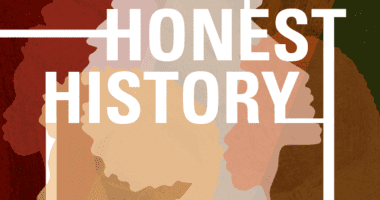Between the Echoes: AP Hunger Games
An offshoot of Ed Trust’s Echoes From the Gap series, drawing stories of students from behind the statistics, this blog series shares shorter narratives — brief glimpses into classrooms and hallways — that give readers an opportunity to examine educator practices and policies through the intimate lens of student experience. All stories are based on interviews or first-hand accounts, but are shared with respect for the privacy of students and the adults around them.
“Happy Hunger Games! And may the odds be ever in your favor.” ― The Hunger Games
She walked onto the campus with confidence. Head high, stride purposeful, hair a shock of rebellious pink, and boots broadcasting that she was not to be messed with.
She’d been chosen to be there. One of just a few rising juniors from her high school across town. Crossing borders to join an elite group of mostly privileged private school students for a summer Advanced Placement English enrichment/prep program on a prestigious college campus. She had come there the hard way. Had earned it.
She and her classmates were ready.
Or so she thought.
The teacher asked them to pull out the first book they’d be reading that fall in AP in their schools.
The private school students’ backpacks unfurled as they reached for their copies of The Odyssey and works by authors like Emerson and Goethe.
“And we pull out,” she paused for effect, “The Hunger Games.”
From there, it was one jolt after the next.
“Everything in this summer program, like, every single class is conversation. And just constantly, as you read, as you discuss, you’re taking deep notes. You’re constantly taking notes and learning.”
She described how different this was from instruction in her pre-AP English class and her AP world history class the year before. “I feel like we spent too much time learning to take the test and not enough time on content. And all of the content that we got was either straight lecture, like the teacher talking completely, totally on her own the whole time. Or, um, from the text. We read two chapters every week of the text.” And the text she described was a far cry from the ones she was encountering in this summer program.
“In this summer program, we read only original authors. So you’re reading Lucretius, you’re reading, um, Aristotle. Those are the ones we read in our one week there. Um, Metamorphosis of Plants by Goethe. And, to me, it was just so crazy, like, how many of those kids knew those things already and had been exposed to them.”
“It just really struck me as unfair. We’re going to be taking the same AP test. The same exact test. We need to know the same exact things.”
Despite her and her schoolmates’ hunger for it, that’s not the exposure and preparation they were getting. As if they’d been offered the wrapper but real AP content and rigor was somehow determined a bite bigger than they could chew.
Now back in her regular school, she sits in class and opens her worn copy of Hunger Games to the dog-eared page in chapter seven, and continues to read as the main character, Katniss, realizes she must fight a battle for which she was underprepared.
“There’s nothing I can do but continue with the plan. I walk to my archery station… Bows made of wood and plastic and metal and materials I can’t even name. Arrows with feathers cut in flawless uniform lines. I choose a bow, string it, and sling the matching quiver of arrows over my shoulder… I walk to the center of the gymnasium and pick my first target. Even as I pull back on the bow I know something is wrong. The string’s tighter than the one I use at home. The arrow’s more rigid. I miss by a couple of inches and lose what little attention I had been commanding. For a moment, I’m humiliated, then I head back to the bull’s-eye. I shoot again and again until I get the feel of these new weapons…”
She dog-ears the page, closes the book, and reaches into her book bag. She pulls out a copy of Kafka’s The Metamorphosis on loan from the library. If her school won’t prepare her, she’ll have to prepare herself.
Learn more about the experiences of low-income students and students of color at the high end of the achievement spectrum in “Falling Out of the Lead.”











